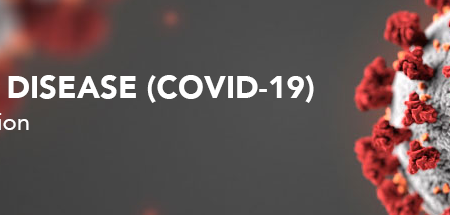Provider Alert! Diabetic Equipment and Supplies-Home Health Policy & Monitoring Update
Date: December 22, 2023
Attention: All Providers
Effective date: February 1, 2024
Call to action: Texas Children’s Health Plan (TCHP) would like to make providers aware that the Diabetic Equipment and Supplies-Home Health Policy has been updated effective February 1, 2024, to address the following changes:
- Changes in continuous glucose monitoring (CGM) client eligibility
- Prior authorization
- Follow up visits after initiating CGM utilization
- Removing the requirement to provide the make and model of the CGM on the Home Health Services (Title XIX) DME/Medical Supplies Physician Order Form
How this impacts providers: The CGM client eligibility updates align with:
- American Diabetes Association (ADA) Standards for Medical Care 2023
- American Association of Clinical Endocrinology (AACE) Clinical Practice Guideline on the use of Advanced Technology in the Management of Persons with Diabetes Mellitus in 2021
- CMS April 2023 Update to Glucose Monitor – Policy Article A52464
These updates have been requested by the American Diabetes Association (ADA) and other Stakeholders. These updates meet the most current evidence based clinical guidelines for continuous glucose monitoring (CGM) client eligibility.
Texas Medicaid Provider Procedures Manual (TMPPM) updates: Effective February 1, 2024, the Texas Medicaid & Healthcare Partnership (TMHP) will update the TMPPM in the Durable Medical Equipment Handbook to update changes in the Continuous Glucose Monitoring policy.
The policy updates include the following changes for CGM coverage changes:
- Removal of the insulin dependence requirement for continuous glucose monitor (CGM) eligibility when other criteria are met
- New criteria outlined for non-insulin treated diabetics for CGM eligibility aligning with CMS
- Eliminating a minimal number of insulin injections per day
- Eliminating a minimal number of self-blood glucose monitoring tests per day
- Outlining visit requirements for initial and follow up visits for CGM utilization which may include a telehealth visit
- The following initial criteria must be met for the client to qualify for the CGM benefit:
- A client must have diabetes mellitus and meet one of the following medical necessity criteria:
- The client is insulin-treated
- The client has a history of problematic hypoglycemia with documentation of at least one of the following:
- Recurrent (more than one) level 2 hypoglycemic events (glucose <54 mg/dL [3.0 mmol/L]) that persist despite multiple (more than one) attempts to adjust medications or modify the diabetes treatment plan
- A history of one level 3 hypoglycemic event (glucose <54 mg/dL [3.0 mmol/L]) characterized by altered mental or physical state requiring third-party assistance for the treatment of hypoglycemia
- A client with unawareness of hypoglycemia or several episodes of hypoglycemia a day also qualifies for the CGM benefit if the client does not meet the criteria outlined above.
- The client’s treating practitioner has concluded that the client or the client’s caregiver has sufficient training using the CGM prescribed, as evidenced by providing a prescription for the appropriate supplies and frequency of blood glucose testing.
- The CGM is prescribed in accordance with its U.S. Food and Drug Administration (FDA) indications for use.
- A client must have diabetes mellitus and meet one of the following medical necessity criteria:
Next step for Providers: Within six months prior to ordering the CGM, the treating practitioner must have an in-person or Medicaid-approved telehealth visit with the client to evaluate their diabetes control and determine that the criteria above are met.
For continued CGM coverage, the treating practitioner must have an in-person or Medicaid-approved telehealth visit with the client every six months following the initial prescription of the CGM to document adherence to the CGM regimen and diabetes treatment plan.
In Fee-for-Service Medicaid, prior authorization is not required for CGM supplies once a device is approved. When a CGM (procedure code E2102 or E2103) is covered, the related supply allowance (procedure code A4238 or A4239) is also covered.
Resources:
- CMS April 2023 Update to Glucose Monitor – Policy Article A52464
https://www.cms.gov/medicare-coverage-database/view/article.aspx?articleid=52464&ver=49& - American Diabetes Association (ADA) Standards for Medical Care 2023
https://doi.org/10.2337/dc23-S007 - American Association of Clinical Endocrinology (AACE) Clinical Practice Guideline on the use of Advanced Technology in the Management of Persons with Diabetes Mellitus in 2021
https://doi.org/10.1016/j.eprac.2021.04.008
If you have any questions, please email Provider Relations at: providerrelations@texaschildrens.org.
For access to all provider alerts,log into:
www.thecheckup.org or www.texaschildrenshealthplan.org/for-providers.





